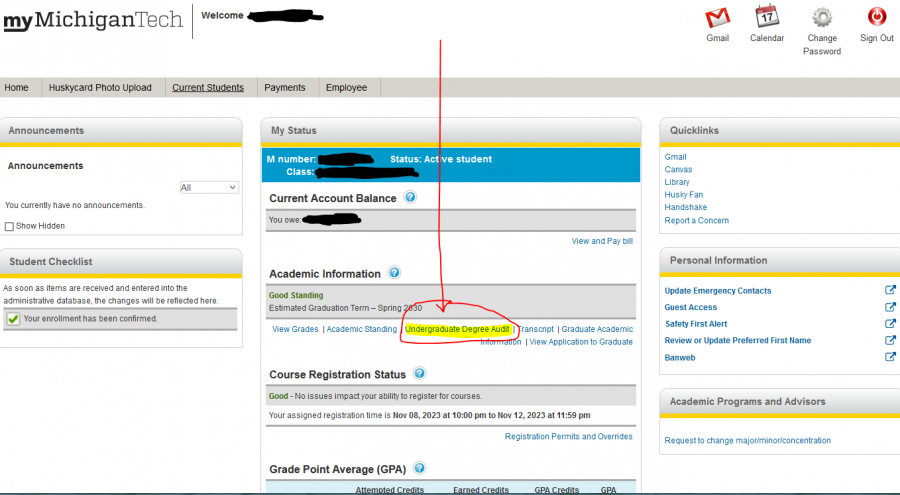Which ENT project course number should you register in?
This is based on the number of semesters you have remaining on campus:
# of semesters left — Take:
1 ENT 4960 (must have completed ENT 4950, Project Approval required)
2 ENT 4950 (must have completed at least one of the below, above ENT1960, & be Senior Design Ready – on track with core course prereqs for CM 4861)
3 ENT 3960
4 ENT 3950
5 ENT 2960
6 ENT 2950
7 ENT 1960 (free electives only)
Most students who choose enterprise, begin in the 2nd or 3rd year. ENT 3980 may be taken before ENT4950 if you’re not yet “Senior Design Ready”.
Which Enterprise should you join? Read here to start. Here is a list of all Enterprise groups at Tech.
The Form to use to request registration in ENT 4950 is found here (Part A). Under Forms, Select “ENT4950 Registration Form (ALL Majors)”. The Emails you receive from enterprisereg@mtu.edu must be kept! One will contain instructions and a very important (unique to you) LINK to submit your Project Summary Form. (Part B)
If you have questions or would like help planning enterprise project work into your semesters, meet with your academic advisor.
Many enterprises require Instructor Permission (=Special Approval) using the common Approval/Waiver Form to register every semester.
Most ENT Course numbers are restricted by Class Standing, depending on the level 1000-4999. If you are ahead/behind on credits and get a Class Restriction Error for the correct ENT# based on semesters left, use the Approval/Waiver Form (or email) to seek a Class Restriction waiver. (ENT instructor)
If you are unsure which ENT project work course number you need, check with your academic advisor.
